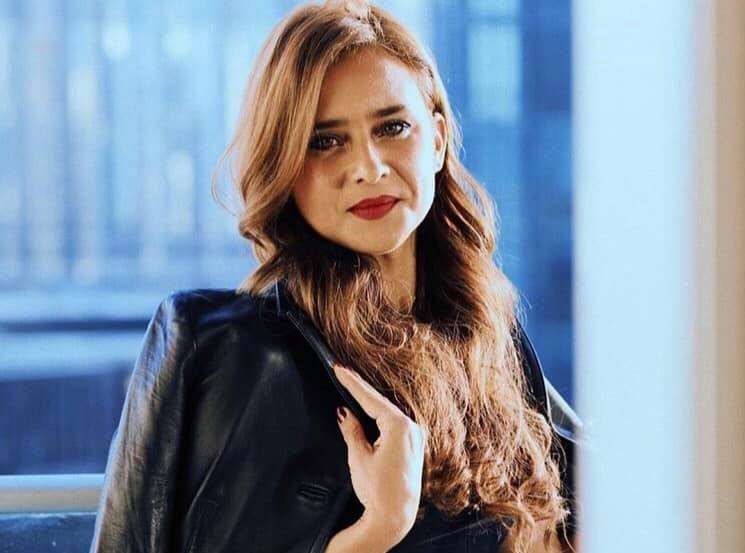Egyptian actress, Nelly Karim attended Thursday evening the closing ceremony of the 42nd Cairo Film Festival (CIFF).
Karim stated in an interview with “DMC” that she was happy to attend this exceptional edition that was held despite the emerging Coronavirus.
The actress also unveiled some details about her new TV series, which she set to participate in Ramadan 2021 drama marathon with.
"The script is not yet complete, but it is not a comedy nor is it a drama genre," she added.

Karim is also set to participate in the Eid al-Fitr movie marathon with the sequel of “Bi 100 Wesh”.
The first part of the “Bi 100 Wesh” was one of the most-watched TV series in Ramadan.
The cast has displayed brilliant acting performances. The series brought to the show the technique of the Spanish series “La Casa de Papel” (Money Heist), displaying a tightly constructed robbery in a light-hearted way, which left the audience thirsty for more.
The filmmakers are currently working on the film’s final preparations as well as hashing out the outlines, in preparation for filming in the coming period.
The series’s makers Amr El Daly and prominent director Kamla Abu Zekry are returning to work on the film, which will also feature the old cast, which includes stars Nelly Karim and Asser Yassin.

Furthermore, Karim and Maged El Kedwany are preparing for a new film entitled “Gozen fi el Halal”.
The film, directed by Mohamed Ali, is set to begin shooting in early 2021. It is a comedy genre that carries a specific message for couples.
They collaborated together in the 2016 film “Hepta: The Last Lecture”.
The actress’s latest artistic work is film “Khat Dam” (Bloodline) co-starring Tunisian actor Dhaffer L’Abidine.
It is worth mentioning that Karim, born on December 18, 1974, is an Egyptian actress, former model, and ballet dancer.
She was born in Alexandria, Egypt, to a Russian mother and an Egyptian father. Karim graduated from the Ballet Arts Academy and began dancing ballet at the Opera in 1991.
The actress has starred in many TV series including, “Wajh al-Qammar”, “Hadeeth al-Sabah wa al-Masaa”, “al-Houb al-Kabir”, and “al-Bannat”.












